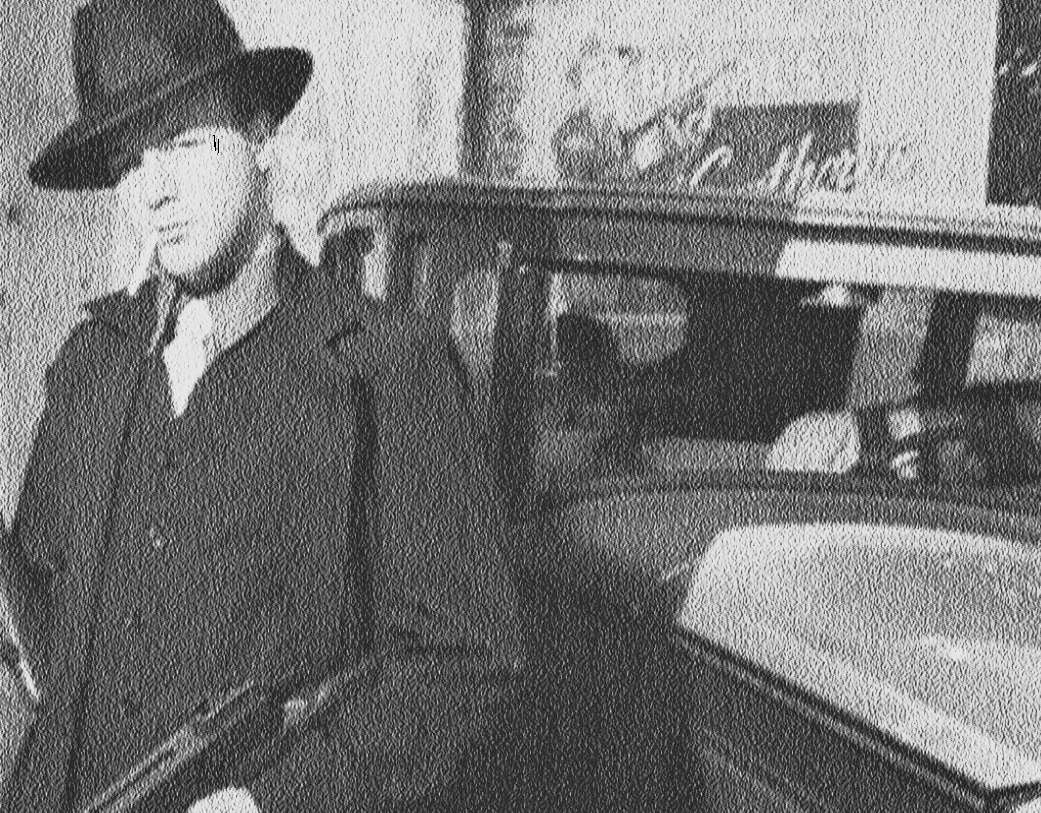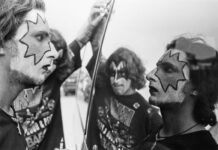The elderly know of tales not penned to any book.
Not those who live in a town, not those bragging that they are natives of a rathole. It’s the old men and the old women who die slowly in the villages, decaying, and becoming one with the earth where they came from.
There are only a few who still draw breath. Some time, in the immediate future, an unwritten civilization will vanish along with them, a perhaps pre-homeric civilization, a pelasgian one, dating back where the Achaeans were hunting buffalos in the Central Asia.
I come from a place where Pelasgians were present before barbaric tribes came from the north. On one side is Arcadia and on the other the most sacred of all places, the one that the Greeks named Olympia.
On the map my village is registered as Lantzoi , the Turkish name that some other conquerors used, but the original name that very few know, remember or mention, is Thalatta1.
An unsuitable name for a village that is located at an altitude of 800 meters. But if you stroll among the olive groves, you’ll see that the earth is thin and sparse, rinsed-grey in colour, just like the hair of an old man. It looks so much like seaside sand, that when I was a little child, I used to take my sand bucket with me. But there was no water to build sand palaces.
Among the stones and the thorns, among the goat “pills” and the centenarian trees, lie plenty of seashells.
When I saw for the first time in my life (I must have been almost a baby) one of these creatures that mould the world from scratch, I asked my grandmother where the sea is.
“It’s here”, she answered me.
As I grew up, I learned that the world was not always as we know it today. Once the seas were meadows and the mountains were sea beds. That was the rational explanation for the seashells, but then my mind stood still in time when I felt that there is much more of what we comprehend.
~~{}~~
The last time I went to Lantzoi, to Thalatta, I was a father. Telemachus was six years old and for the first time in his life he saw a living hen, with feathers and a head too and a warm body, not like the ones he was acquainted with from the super markets.
We picked up seashells and olives and we strolled among the dunes.
One day my mother made revani, which was very successful, and decided to share it with the villagers in order to share her joy – and her boast as well. She gave me two pieces to take them to the house across the street where old-Vasilis and Mary were living. Telemachus wanted to tag along because he was keen on getting familiar with every place of this strange land.
We rang the bell and I told the kid that we should be very patient till they open us the door. Old-Vasilis was the oldest man in the village. Nobody could tell exactly the day he was born, himself included. Some said that he made his way from his mother’s innards at the end of the pre-previous century, somewhere in 1898.
It sounded quite sensational until his daughter made her appearance.
Mary, who opened the door after two hours give or take something, was like an old hobbit.
A warped old tree that couldn’t look at the sky, doomed to face the earth until they become one.
It was totally mystifying how she could walk with these wounded legs that were swollen and transmogrified like one-piece trunks. On her face there was a moustache and a thin goatee, which bore a strong resemblance to Ho Chí Minh’s, and her eyes were literally Chinese.
Mary was a spinster by her own free will. She didn’t like men and that was known to all in the village. So she remained unmarried.
Even back in those years, when the sun was the men’s clock, there were women who didn’t like men and men who didn’t like women.
For men, a “nature” like this was a disgrace but the women were more easily accepted. They remained unmarried and childless, taking care of the children of their siblings, their aunts and their grandmothers – no grandchildren.
Mary had seven sisters who should have dowry in order to get married. Therefore, it was convenient the eighth daughter to remain unmarried and take care of the others’ children – as well as the parents when they would grow old.
~~{}~~
Mary caressed Telemachus with abundant affection, since she hadn’t seen any child for decades, she, who rouse so many of them without having any of her own. She took the revani and led the way to the upper floor, slowly and torturously, almost five minutes a step.
The smell of dated germs, dust and dry leather greeted our nose. There was also an imperceptive smell of Vicks. You could hear the woodworms munching wood and the old man’s dull breath.
Old-Vasilis was sitting in front of the window with his eyes closed, as if he was sunbathing.
“Some people came to see you” told him Mary with a voice so loud that left no doubt about the magnitude of the listener’s deafness.
We didn’t go there to see him, but the sight was worthwhile nonetheless.
As people grow old, their body shrinks and their limbs swell. The fingers, the nose and the ears become disproportionally big, like a caricature.
Old-Vasilis was beyond that stage of limb enlargement and had reached the next one. His nose and ears were so small, that they looked like the features of a baby, as if a prankster of a God, to piss himself laughing, fastened them on the face of an old man.
Combined with his sparse hair, like down on his skull, the non-existence of facial hair, and his bare gums, old-Vasilis looked more like a baby – monstrous for sure and grotesque, but baby nevertheless- than an old man.
~~
When he heard Mary’s –loud- voice, turned to us and opened his eye.
Eye, not eyes, since the other one was so clouded by cataract, that there was nothing else but sclera.
The Cyclops gave me an intent look and he laughed. Then he spoke, with a much more ringing voice than I expected, and he said something that caught me off my guard.
“Ah, Thanasis you’re back?” (I kept my mouth shut) You’ve put on a tad weight. The ‘mericans feed you well at Chicago, right?”
~~{}~~
I had read some books about neurology, mainly of the much lamented Oliver Sacks, so I knew that people affected by senile dementia often suffer from retroactive amnesia, where all of their memories, after a cut-off point in their youth, are erased.
Then they often mistake the people who see with the ones they knew when they were young. And if you show them their face in the mirror, you’ll be asked who is this old man or what kind of stupid joke is this and who put them on this mask.
They live in a constant youth with a rigid identity, the only creatures that can swim twice – and thrice and thousands of times- in the same river, in the same waters of time.
~~{}~~
Before I tell old-Vasilis that I wasn’t Thanasis (Thanasis who?), I saw Mary raising slowly her head, like a turtle from Galapagos, to look at me. When she did so, she goggled at me and made the sign of the cross. Then she turned around and walked into a nearby room.
“Sit down Thanasis, let’s drink some wine and have a talk. How’s America? What do the goats eat there?”
He said that and laughed as if he knew he was mocking himself. I dragged a stool and sat opposite to him. Telemachus remained standing, propping himself against my shoulder.
Before I answer and talk about the goats in America that I’ve never seen, I heard Mary shuffling back. She was clasping a frame in a way that I could see only the back side, a yellowish ragged paper, dotted in stains of ochre and mould.
Once she got close enough, she stopped in her tracks; and she turned around the frame.
It was a faded black-and-white picture. It portrayed a man, dressed in an elegant suit, a mackintosh, a white tie and a hat. He had a cigar clamped between his lips and he was looking askew beneath the brim of his hat.
You could see the very end of something that he was holding, perhaps a gun, leaning himself against an age-old car, one of these interwar Fords that were speeding up on the American highways during the prohibition era and the great crash.
On the right, at the bottom of the border of the picture it read “Chicago 1933”.
“Was it carnival?” asked Telemachus looking at the picture and talking to me. “As what are you disguised?”
It’s true that this man with the hat, Thanasis – it was crystal clear – bore great resemblance to me. In a sense, it was me. Even my birthmark is there, the “scratch” next to my left eye, which my father used to tell me that the midwife did it with her nails.
“I don’t get it” I said leaning back, unable to take my eyes off the picture, my face.
Mary placed the picture on the table, for us to look at it and staring back at us, and she sat slowly on her chair. He began telling us the story of the picture.
~~{}~~
Thanasis was the youngest brother of Vasilis. Since he was a little child, he was remarkably smart , a daredevil, he was stealing eggs and hens, he belted the kids that didn’t obey him, and rumours had it that he had an affair with the widow since he was fourteen years old – as well as with many others, married or not. By eighteen, he had conquered Katakolo.
Katakolo was, during this time, Greece’s most infamous place. It was Pyrgos’ seaport and the harbor was a stronghold for outlaws for the entire west Mediterranean Sea.
There were docking mainly small ships with fake documents and clandestine loads. The harbor was teeming with prostitutes of every nation and age, picking up Italian or Spanish sailors. There were dive bars stinking piss and opium and stabbings were a daily routine.
The ships were smuggling guns and clothes from Paris, stolen of course, and got loaded with dope from Kalamata, the finest in Europe, which was channeled to the whole world through Marseilles.
Loads of dirty money circulated and Thanasis was a part of the ring. He had two lovers who gave him a cut of their earnings, to love them and protect them.
When it came to card playing, he was unbeatable because he had mastered bluffing, choosing to lose when having a good hand and when everybody figured that he was absolutely clueless and a sucker, then he betted all the money that Genofeva had stuffed in her bra ,winning the pot.
He was the big fish in Katakolo but he was born for a bigger aquarium.
When he was 20 years old, he kissed his mother and his siblings goodbye, his protégés and Katakolo too and sailed to America – through Marseilles.
It was 1930.
~~
For three years nobody in Lantzoi had heard anything of what became of him.
Until, some day, some noon, the postman went to the slum where Thanasis was born. He told his mother that there was a bulky parcel from America. And also a notification for a cheque at the Bank of Patra.
In the parcel there was a photograph of him along with a letter.
Thanasis had stayed a year in New York where he made his first acquaintances and then he settled in Chicago. He penned the majesty of America, the skyscrapers, the highways, the cinemas, the trains, the cars and the women.
He said he had found a good job at Chicago.
~~
Vasilis borrowed some money from his fellow villagers to go to Patra. And when he went there, he was convinced that Thanasis had tangled with outlaws.
The branch manager himself welcomed him, offered him a cup of coffee, and told him that a remittance in dollars was pending.
Back then the dollars were better than gold. And Thanasis had sent loads of them.
His mother said that she didn’t want the money, she’d rather have her son back but the rest of her children didn’t share her views. The dollars from Chicago turned Dogas family the richest one in the village – and in the entire province of Oleni.
They built a two-storey house with all comforts, including an indoor toilet no less, the first one in the village and the only one till the dictatorship of Papadopoulos2. They bought land and animals.
They could even afford to buy a car the next time that Thanasis sent money. It was the only one in a distance of a hundred kilometers, so rare that they often run out of gas and they had to ride the mule and fill up cans.
Everybody referred to Dogas family as “the ‘mericans” and they were envied by all and sundry.
The third remittance ensured a fine marriage for all his sisters, since they had a respectable dowry, printed in dollars.
A fourth remittance never came – or another parcel or letter. Thanasis vanished off the face of earth.
~~
His mother was convinced that he was rubbed out and maybe she was right. Every occupation has its hazards. She lamented him till she passed away too in 1951, one day after the elections that women were also entitled to vote.
Even on her deathbed, she was asking Vasilis to make a cenotaph for her son, to bury and lament him but Vasilis wouldn’t listen. He said that his brother was smarter than all the ‘mericans. It’s impossible to get the better of him.
He believed that Thanasis had headed for Argentina or Brazil, another wonderland for exploitation, where Gringos made more money than all the Greeks combined did in a year.
He hadn’t had any news of him ever again, but he never quitted waiting for him.
~~{}~~
“And here you are” said Vasilis, laughing for turning out to be right. “I knew it that you’d come back. Where have you been?”
My eye caught Mary signaling me with her swelled fingers. She placed them on her goatee and caressed it, all the while begging me with her eyes not to fail him, not to disillusion him.
“Cuba” I told him. “I’d set up a casino in Havana opposite from Hilton. The license alone and the kickback to the police cost 25.000 dollars. The roulettes were run by the Cubans. We had the cards, the women and the drugs.
At this time I was reading “Libra” of Don DeLillo, so I had vivid pictures to describe, as if I had lived literally in the pre-Fidel era of Cuba. Who said that reading novels has nothing to offer?
“But Castro ruined everything with his barbudos. I was in the same plane with Batista.”
“Who’s this Castro?” asked Vasilis.
“A communist. He nationalized everything and gave not a dime for reimbursement.”
“Communists” said old-Vasilis with loathing.” They want to do the same here. Thank God the English help us out, or else we would have become Soviet. It remains to be seen how we will kick them out of here.
I understood that old-Vasilis was stuck somewhere in 1945. Apparently, he didn’t remember anything about the Treaty of Varkiza3, Papandreou, Karamanlis or Junta.
“Will you go back to America now?” he asked me.
“There’s no need” I told him. “America is everywhere now”. And this time, I wasn’t lying.
~~{}~~
Telemachus had gotten bored long before but he was distracted watching Mary getting in and out her teeth using her tongue, like a toothless chameleon. Finally, he prodded me to get up.
“Is this your son?” asked old-Vasilis. “What’s your name child?”
“Bob” said Telemachus, surprising even myself.
“Bob?” said old-Vasilis and gave me a look. “Why didn’t you name the kid after your father? Don’t you like the name Epameinontas?”
“That’s his name” I told him. “Epameinontas, Nontas but in America they call him Bob”.
“Those ‘Mericans are crazy” he said and he laughed so hard that he started coughing and choking, having trouble to breathe properly.
Mary went over to help him and we found the door to leave the house by ourselves.
~~{}~~
Back home I told my father about the misunderstanding, this astonishing resemblance and Thanasis.
“Thanasis Dogas?” he said nodding with his head.
“You know him?”
“Who doesn’t? My mother used to tell me about this American”.
“What did she tell you?”
“That half of the village’s children, are his grandchildren.”
I went out of the house and saw Telemachus ambushing a broody hen.
A few days later, old-Vasilis passed away. But he got around to telling me about Thanasis and the deluge, of which I might write some other time.
~~~~~~~~~~~~~~~~~~~~~~~~~
1.Thalatta is “sea” in the Attic Greek dialect.
- The leader of Greek military junta of 1967-1974.
- A pact between the Greek Minister of Foreign Affairs(supported by the British) and the Secretary of the Communist Party of Greece, which specified that the latter would disarm.
~~~~~~~~~~~~~~~~~~









